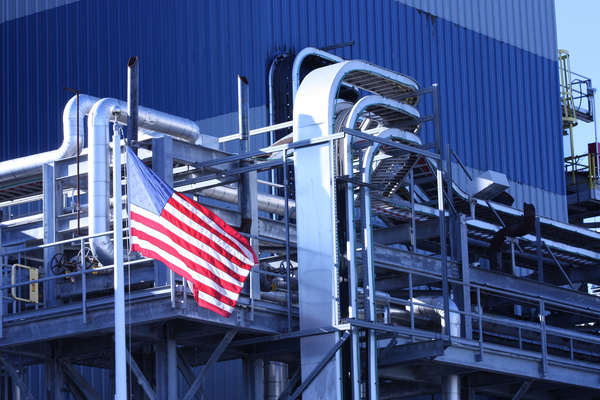Supply chain finance gets technical

Maurice Benisty at Demica describes how banks are getting smarter about technology and propelling growth in supply chain finance for businesses
As global markets continue to grapple with high interest rates and economic volatility, supply chain finance has emerged as a vital solution for unlocking liquidity and supporting businesses’ working capital needs. It enables suppliers to receive payments early, improving cash flow for businesses along the supply chain.
Smart investments in technology and talent are enabling global trade banks to drive growth in supply chain finance, and support global trade.
A survey of global trade banks by the fintech Demica found 81% expected to see growth in supply chain finance assets in 2025. Two-thirds (66%) are already exploring new markets and 52% are introducing new supply chain finance products.
Receivables discounting, where corporates unlock liquidity by monetising their invoices, has emerged as a key area, with 27% of surveyed banks recognising its high potential for growth over 2025. This marks a shift from the previous two annual benchmark reports in which banks saw payables finance as the prime growth driver within the supply chain finance product set.
In an environment of higher interest rates than the world has experienced in the previous decade, receivables can offer quicker access to lower-cost funding.
Receivables and payables finance are not the only areas of growth. Thanks to their investments in supply chain finance technology, many surveyed banks can see growth potential in inventory finance, securitisation of trade receivables, and from asset-based lending and dynamic discounting of receivables. Nearly four-in-ten banks (39%) said their technology budgets are set to increase this year as they see how digitalisation is opening up new opportunities.
Trade finance teams are recruiting
With the emphasis on growth, many banks are also combining their technology investments with expansion of their trade finance teams. Half (50%) of the trade finance teams surveyed said they intended on increasing headcount this year, which is the same proportion as 2023.
This emphasis on resourcing reflects the inherent complexity of working capital solutions, requiring high amounts of data analysis, processing and reporting. Conducted manually, they are labour-intensive because of the need to understand and track huge numbers of items such as invoices and purchase orders and thousands, or perhaps millions, of customers. In less advanced banks this work continues on spreadsheets which drastically limits scale, efficiency and innovation.
Advances of supply chain finance platforms
Platform technology, by contrast, streamlines the collection and analysis of the uniquely large amount of data generated throughout the lifecycle of trade finance transactions. This data comes from many sources and multiple systems which make manual collation almost unviable in a large funding programme.
These tools make it easier to monitor important metrics in receivables finance, such as ineligibility, ageing and dilution.
Automation and transparency have another significant benefit in the supply chain finance market. They make it much easier to distribute risk in a substantial funding programme to a wider range of investors, meeting the increased demand from non-bank institutions looking for returns. This increasingly delivers extra revenues for banks and is important in the context of Basel IV, a global regulatory framework that imposes stricter capital requirements on banks.
For banks, the effort to achieve compliance with regulation is a time-consuming aspect of supply chain finance, which technology is transforming. In securitisations, for example, which are highly regulated, platform technology streamlines compliance with the reporting requirements of bodies such as the European Securities and Markets Authority.
Digitalisation has brought a new flexibility and product diversification to supply chain financing that comes without increased risk. Banks can now employ their data insights to design funding programmes more closely tailored to individual customers’ requirements. In a market like Europe, where trade finance is very mature, technology becomes a differentiator through its sheer efficiency and speed.
On-boarding is a case in point. Normally this is a lengthy and complicated process when completed by hand. But technology is now streamlining every aspect through direct connections of sellers, buyers and the banks involved in a transaction. In a payables finance programme, technology eliminates time-wasting reliance on emails for the transfer of KYC (know your customer) documents and statements, for example.
The long-sought-after goal of straight-through-processing is now a reality, delivered through connections to core banking systems and ERP systems.
As more and more banks are recognising, platform technology is now transforming supply chain finance, providing opportunities for banks as global GDP edges in the right direction. Figures from the IMF and the UN Trade and Development (UNCTAD) are for global GDP growth of around 3% this year.
These positive signs, despite continuing global uncertainty and inflation, promise good returns for banks and institutions that streamline efficiency and develop new products and services to support global trade.
The integration of data and technology into trade finance is set to create real benefits for the entire trade ecosystem. It could very well be that supply chain finance is the one area where change in trade finance will be most impactful.
Maurice Benisty is Chief Commercial Officer at Demica
Main image courtesy of iStockPhoto.com and CHUNYIP WONG

Business Reporter Team
Most Viewed
Winston House, 3rd Floor, Units 306-309, 2-4 Dollis Park, London, N3 1HF
23-29 Hendon Lane, London, N3 1RT
020 8349 4363
© 2025, Lyonsdown Limited. Business Reporter® is a registered trademark of Lyonsdown Ltd. VAT registration number: 830519543





